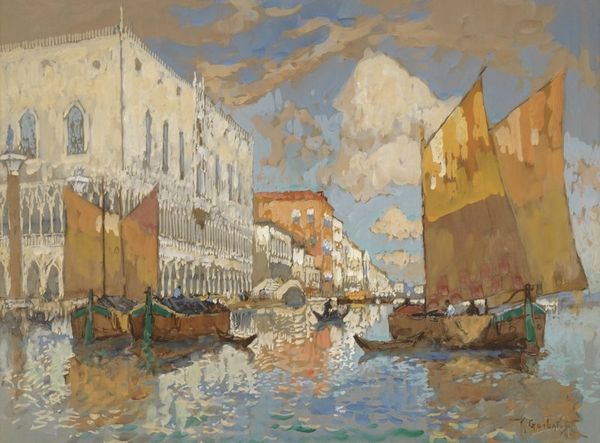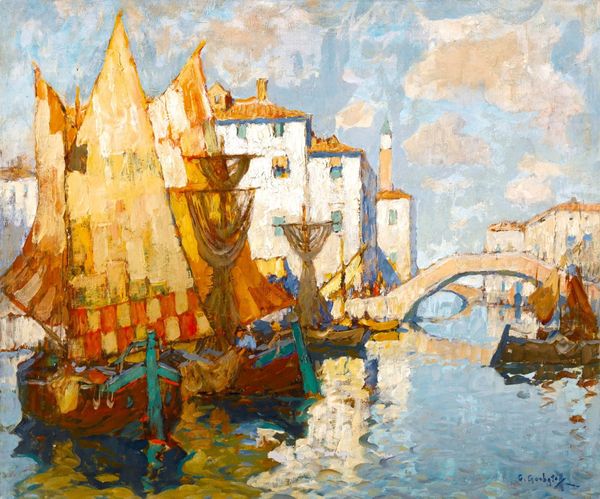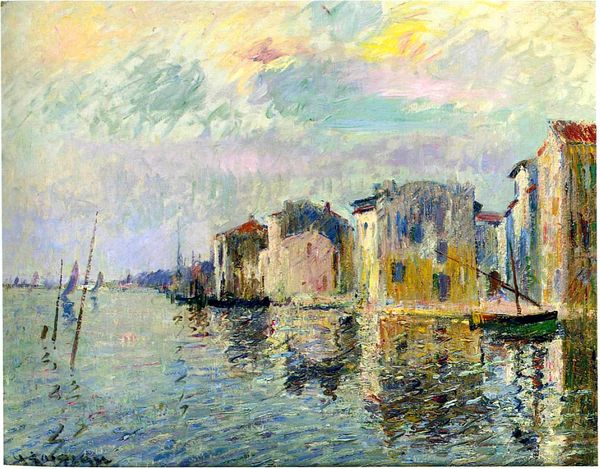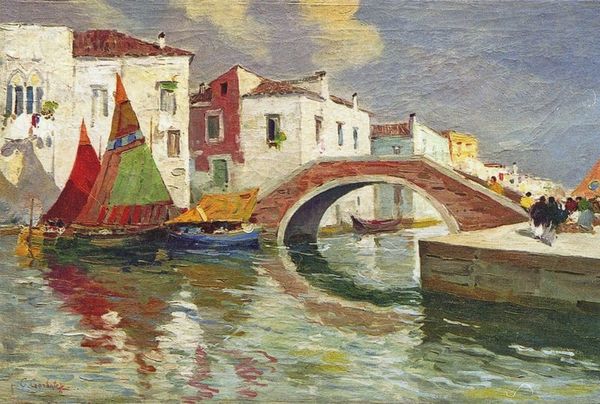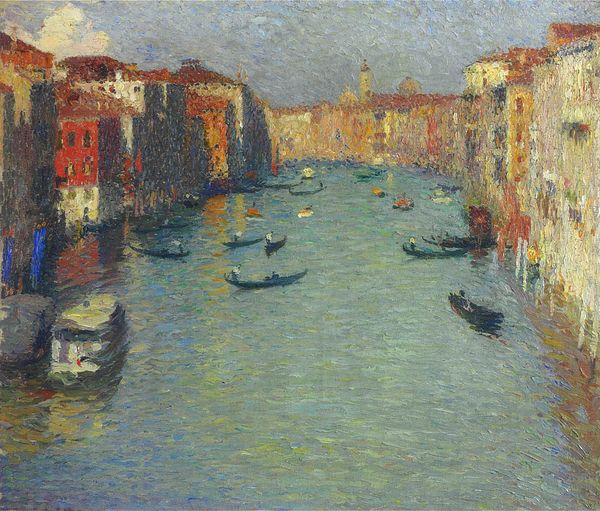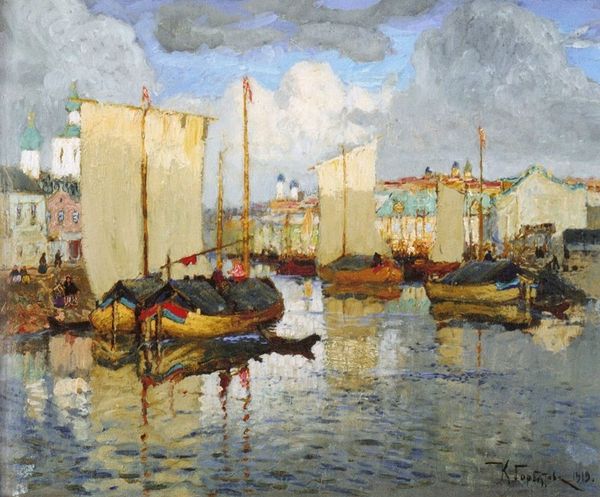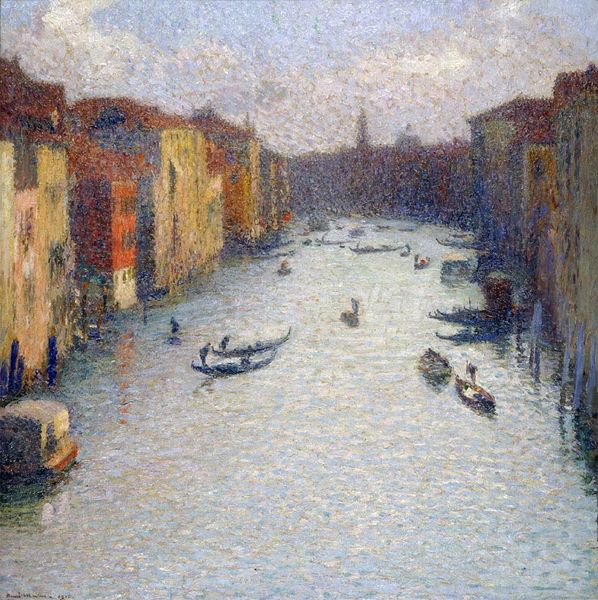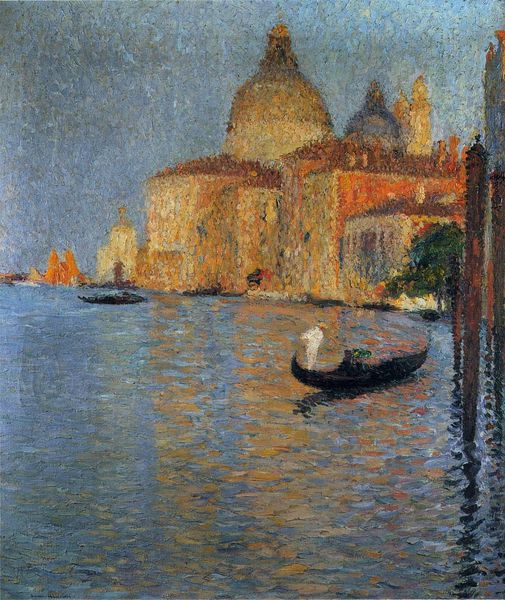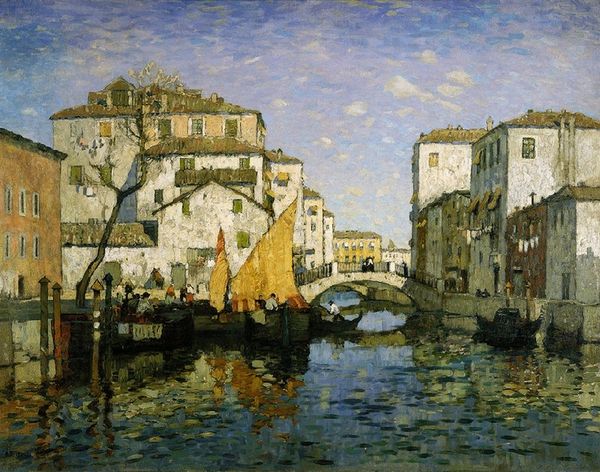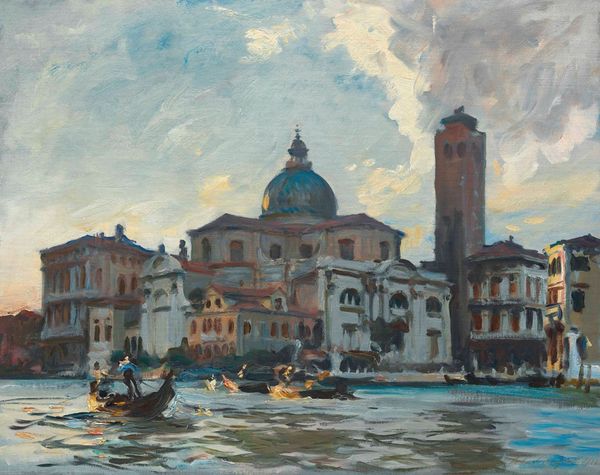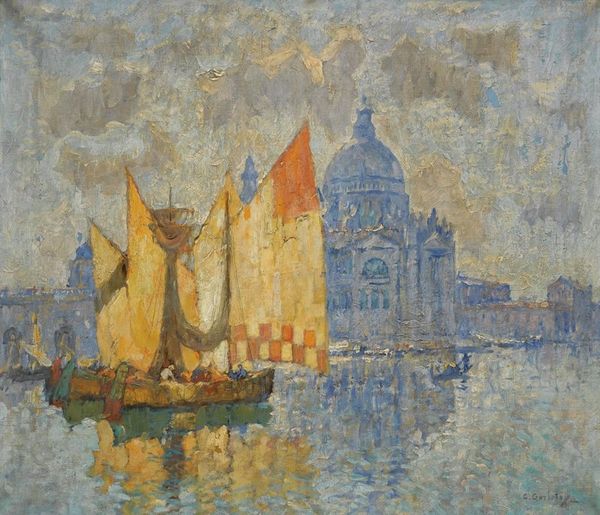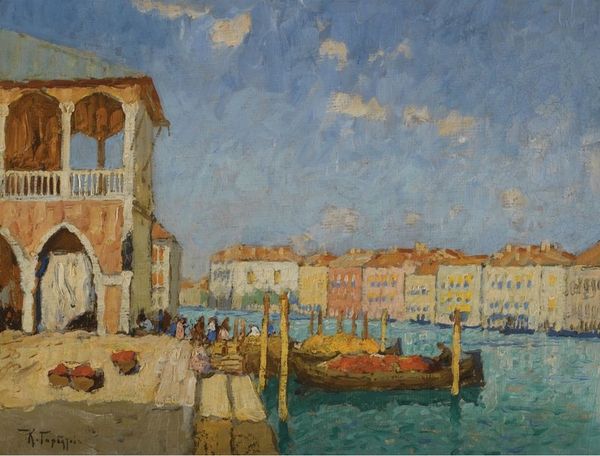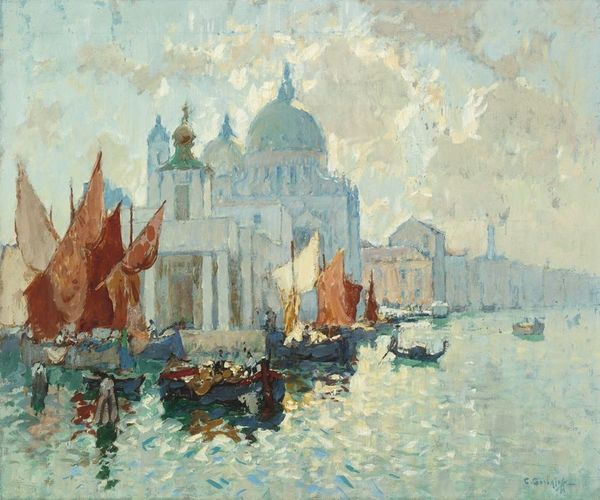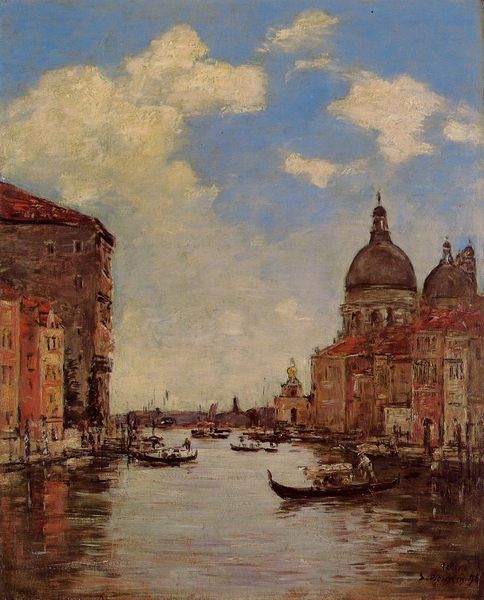
Copyright: Public domain
Curator: Here we have Konstantin Gorbatov’s "Venice," an oil painting dating to 1942. It's a lovely depiction of the city, capturing its architectural essence. Editor: Immediately, the texture jumps out at me – the impasto technique creates a tangible sense of the lagoon's shimmering surface. There’s a wistful, almost melancholy atmosphere hanging over it. Curator: It's interesting that you perceive melancholy. Consider the historical backdrop: Gorbatov, having already fled Russia after the revolution, painted this during World War II. His own displacement likely colored his interpretation of Venice, a city steeped in history and now under threat. Editor: Precisely! It's impossible to view it outside of that lens. The way the light filters through the clouds seems less about beauty and more about a fragile existence, reflecting how power structures influence the very fabric of a place. Is Gorbatov romanticizing a fading ideal or documenting his fragile state, or is this meant to offer social critique on an intersectional level? Curator: He masterfully captures the city’s unique light, that liminal space between water and sky that defines Venice. However, his personal experiences undoubtedly influenced his art, as can be seen in the subject choice itself. Venetian painting at this time became not just about landscapes but documentation about changing cultural values and preservation Editor: The boats, though quaint, feel burdened, perhaps symbolizing the weight of history and the people caught within it. It almost begs us to discuss not just the beauty, but who has access to beauty and for what purpose? I'm not certain that Gorbatov completely considers the perspectives or class dynamics reflected here in his work, but they are inevitably relevant. Curator: And certainly, to broaden the context even more, we could also consider the painting as part of a broader narrative of Russian émigré artists grappling with themes of displacement and cultural identity within their respective mediums. Editor: It becomes much more potent when we read it within a system of loss and, indeed, resilience. Curator: Ultimately, Gorbatov presents us with a compelling view of a vulnerable, yet enduring city through the complex layers of socio-political history. Editor: Absolutely, giving new eyes to Venetian art itself, even within traditional landscapes. It really prompts reflection.
Comments
No comments
Be the first to comment and join the conversation on the ultimate creative platform.
